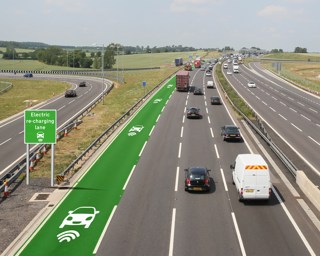Fleets need to assess impact of stricter emissions laws and evaluate residual value risk as the Chancellor signposts and electric future, according to a new white paper from Sewells Research & Insight.
The report suggests that fleet operators are dragging their heels when it comes to adopting clean electric technology and warns that they risk being left behind with depreciating dirty diesel cars and vans unless they start planning now for an orderly transition to electric vehicles.
As a raft of measures in Chancellor Philip Hammond’s autumn statement revealed the Government’s long-term commitment to shifting the UK vehicle parc from diesel to electric power.
Report author Mark Sutcliffe said: “At some point before 2020, the majority of fleets – especially those operating vans predominantly in urban environments – will need to formulate an emissions reduction strategy that will see them replace a proportion of their fleet with electric vehicles.
“The timing of this decision and the extent of their commitment to EVs will be the defining strategic choice facing fleet decision makers over the next five years.
“Fleet managers who buy diesel vans from 2017 onwards, may regret that decision when, come 2021, they are faced with offloading four-year-old vans that are restricted from driving in centre centres and significantly more expensive to run than their latest electric counterparts.
“Proactive fleet managers who work out their transition strategy now will more effectively manage their residual value risk and avoid some awkward conversations with their finance and operations directors over the next three years.”
Despite testing the occasional vehicle for evaluation purposes, only a small minority of fleets have made the commitment to switch to Zero Emissions Vehicles.
Company car drivers are beginning to embrace the benefits of electric vehicles with tax-efficient hybrids like the Mitsubishi Outlander PHEV, experiencing strong demand from user-choosers.
But according to the latest Sewells research, the majority of fleet decision makers only expect a gradual adoption of electric engine technology over the next decade.
More than half of fleet managers admitted they had little to no knowledge of specific details relating to the Government grants available, choice of vehicles on the market, recharging networks or SMR savings for EVs.
This contradicts a growing consensus among industry experts that the tipping point will arrive as early as 2022 – and potentially even earlier as a combination of factors conspire to make electric vehicles more attractive to drivers.
Assuming that the majority of fleets in the UK operate on a three-years/60,000-mile or four-years/80,000-mile replacement cycle – cars and vans that are due to be defleeted within the next four years may need to be replaced with electric vehicles. This means fleet operators need to start planning for the electric transition now.
The Paper: ‘Why fleet operators need to start planning for the transition to zero emissions vehicles in 2017” is available as a pdf direct from Sewells (http://www.sewells.co.uk).





















Glenn Ewen - 15/12/2016 12:24
Fleets will start planning as soon as there are viable electric vehicles that can eliminate range anxiety and are flexible enough to replace traditional ICE vehicles. The vehicles have to fit the job, not the other way round. You can alter work practices, but cannot change the fundamental requirements. Currently, and for the foreseeable future, businesses will need to have conventional powered vehicles on standby for when electric goes flat, will take too long to recharge, or has to travel a greater distance than the range of the electric vehicle.